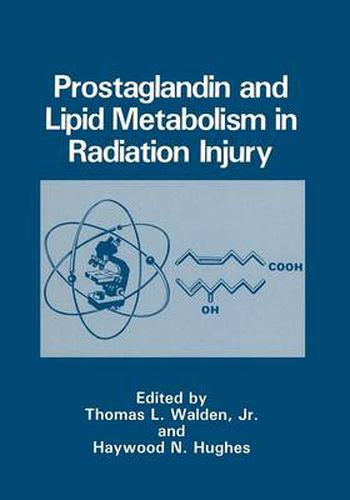Readings Newsletter
Become a Readings Member to make your shopping experience even easier.
Sign in or sign up for free!
You’re not far away from qualifying for FREE standard shipping within Australia
You’ve qualified for FREE standard shipping within Australia
The cart is loading…






This title is printed to order. This book may have been self-published. If so, we cannot guarantee the quality of the content. In the main most books will have gone through the editing process however some may not. We therefore suggest that you be aware of this before ordering this book. If in doubt check either the author or publisher’s details as we are unable to accept any returns unless they are faulty. Please contact us if you have any questions.
This volume contains the proceedings of the International Conference on Prostaglandins and Lipid Metabolism in Radiation Injury held in Rockville, Maryland, on October 2-3, 1986. Over 200 persons from eight countries attended the program, which consisted of 24 oral presentations and 38 poster presentations. Forty-two of those presentations have been included in this volume. The conference was sponsored by the Armed Forces Radiobiology Research Institute, located in Bethesda, Maryland. The effects of radiation on lipid synthesis and membrane damage are aptly summarized in the first five chapters. These chapters describe the effects of radiation on lipid peroxidation of model membranes, and the role of lipid composition in mammalian cell death and in bacterial radio- and thermosensitivity. In bacteria, lipid peroxidation is not essential for radiation-induced cell death. One of the key points of the conference was the paradoxical nature of the radiobiology of eicosanoids. On the one hand, eicosanoids are mediators of damage; on the other, they are radioprotective agents. It is clear from the literature and from the data presented at the conference that both of these properties may also be observed as a consequence of radiotherapy. Some studies indicate that nonsteroidal anti-inflammatory drugs may minimize or prevent certain radiation induced damage, but other studies show no positive effect.
$9.00 standard shipping within Australia
FREE standard shipping within Australia for orders over $100.00
Express & International shipping calculated at checkout
This title is printed to order. This book may have been self-published. If so, we cannot guarantee the quality of the content. In the main most books will have gone through the editing process however some may not. We therefore suggest that you be aware of this before ordering this book. If in doubt check either the author or publisher’s details as we are unable to accept any returns unless they are faulty. Please contact us if you have any questions.
This volume contains the proceedings of the International Conference on Prostaglandins and Lipid Metabolism in Radiation Injury held in Rockville, Maryland, on October 2-3, 1986. Over 200 persons from eight countries attended the program, which consisted of 24 oral presentations and 38 poster presentations. Forty-two of those presentations have been included in this volume. The conference was sponsored by the Armed Forces Radiobiology Research Institute, located in Bethesda, Maryland. The effects of radiation on lipid synthesis and membrane damage are aptly summarized in the first five chapters. These chapters describe the effects of radiation on lipid peroxidation of model membranes, and the role of lipid composition in mammalian cell death and in bacterial radio- and thermosensitivity. In bacteria, lipid peroxidation is not essential for radiation-induced cell death. One of the key points of the conference was the paradoxical nature of the radiobiology of eicosanoids. On the one hand, eicosanoids are mediators of damage; on the other, they are radioprotective agents. It is clear from the literature and from the data presented at the conference that both of these properties may also be observed as a consequence of radiotherapy. Some studies indicate that nonsteroidal anti-inflammatory drugs may minimize or prevent certain radiation induced damage, but other studies show no positive effect.